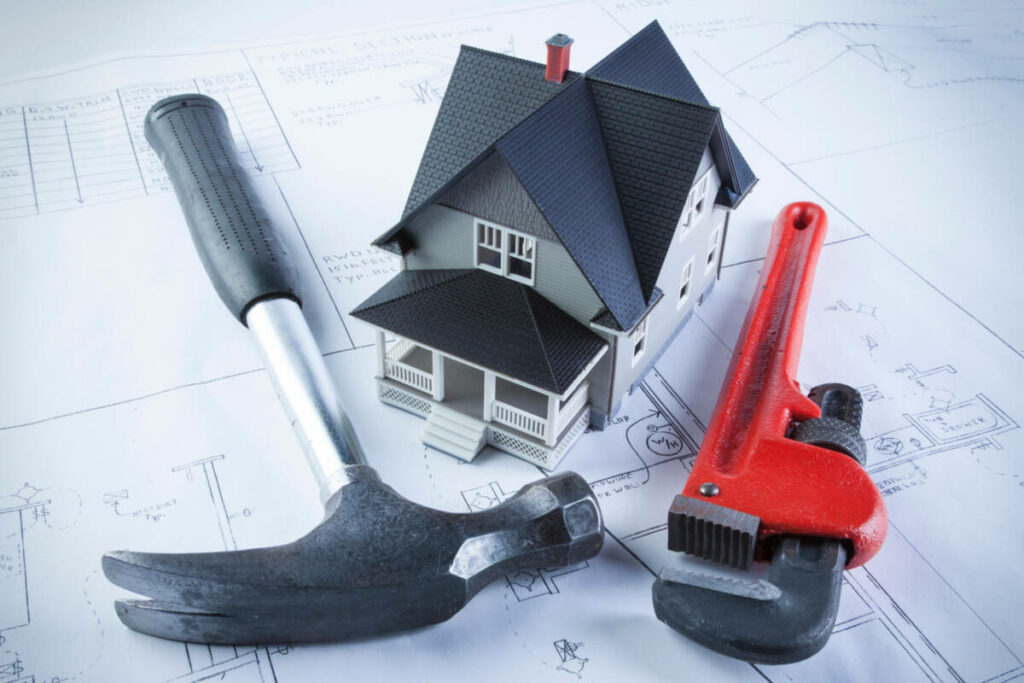The Hidden Costs of Hiring Unlicensed Contractors for Home Improvement Projects
The Hidden Costs of Hiring Unlicensed Contractors for Home Improvement Projects
Hiring someone to help with home improvement projects can be daunting. Homeowners need to remember that even if the person they choose appears to have the necessary skills and competencies, it doesn’t mean they are legally licensed or qualified by law. Unlicensed contractors tend to guarantee lower costs than properly certified ones; however, hidden expenses can sometimes be associated with this decision that may cost more in the long run. This blog post will cover some of the unseen risks and potential pitfalls of selecting an unlicensed contractor for your project. So read on before deciding whether hiring an unlicensed contractor is right for you!
Explain why hiring a licensed contractor is essential for successful home improvement projects 
Hiring a licensed contractor for your home improvement project is more than just a recommendation; it’s a requirement. A licensed contractor possesses the knowledge, skill, and experience to perform home improvements excellently. Moreover, by hiring a licensed contractor, you ensure your project adheres to building codes and regulations specific to your state or municipality, avoiding costly mistakes or legal issues. Plus, licensed contractors often provide warranties and guarantees on their work, offering you peace of mind and protection should problems arise after project completion. In short, hiring a licensed contractor for successful home improvement projects that look great and add value to your home is essential.
Identify the potential risks of hiring an unlicensed contractor
When hiring contractors, it’s important to exercise caution and do your due diligence. One of the biggest risks you can take is to hire an unlicensed contractor. These individuals may appear able to complete the work you need. Still, without a license, they lack the proper training, knowledge, and insurance to offer a professional level of service. If something goes wrong, this can result in shoddy artistry, safety hazards, and legal issues. As a homeowner, verifying a contractor’s license and credentials is always wise before agreeing to work with them. It may take some extra effort upfront, but ultimately, it will save you time, money, and headaches.
Discuss the hidden costs of using an unlicensed contractor for home repair work
 Home repairs can be daunting, not only because of the physical work involved but also because of the financial implications. When considering the cost of repairs, opting for the cheapest option available can be tempting. However, choosing an unlicensed contractor for the job can lead to hidden fees that may cost even more in the long run. Unlicensed contractors may not have the necessary skills, training, or insurance to do the repairs adequately.
Home repairs can be daunting, not only because of the physical work involved but also because of the financial implications. When considering the cost of repairs, opting for the cheapest option available can be tempting. However, choosing an unlicensed contractor for the job can lead to hidden fees that may cost even more in the long run. Unlicensed contractors may not have the necessary skills, training, or insurance to do the repairs adequately.
This could result in shoddy work, which may lead to additional maintenance and cost more than a licensed contractor had been hired. Furthermore, if an accident or an injury occurs while an unlicensed contractor works on your property, you may be liable for medical expenses and legal fees. To avoid these hidden costs, choosing a licensed contractor with the expertise, skills, and necessary insurance is essential to carry out home repairs professionally.
Before hiring, please explain how to research and verify a contractor’s license
When hiring a contractor, it is important to ensure they have the proper job license. There are a few steps you can take to research and verify a contractor’s rights. Start by checking your state’s licensing board website for information on the license type the contractor should hold.
From there, you can use the board’s online search tool to verify the contractor’s license status and any disciplinary actions against them. It’s also a good idea to ask the contractor for their license number and to check it against the licensing board’s records. These steps can help you ensure the contractor you hire has the credentials and experience to complete the job professionally.
Outline steps to take if you find that an unlicensed contractor has scammed you.
If you find that an unlicensed contractor has scammed you, it can be a frustrating and overwhelming experience. The first step is to gather all the information you have about the contractor, such as their name, license number, and any contracts or receipts you may have. Next, file a complaint with your state’s licensing board and the Better Business Bureau. You should also contact your local law enforcement agency to report the fraud. It’s important to quickly limit the damage and prevent others from falling victim to the same scam. Remember always to do your due diligence and research any contractor before hiring them to avoid future scams.
Describe ways to protect yourself from becoming a victim of fraud when working with contractors
When working with contractors, it is important to be vigilant and take steps to protect yourself from fraudulent activities. First and foremost, always do your research before hiring a contractor. Check their credentials, reputation, and references to ensure they are legitimate. It is also essential to have a written contract outlining the scope of work, payment terms, and timelines. Additionally, pay only for work completed to your satisfaction and never pay cash upfront. Finally, keep all communication and documentation in writing to have a record in case of any disputes. Taking these precautions can significantly reduce your risk of falling victim to contractor fraud.
In conclusion, researching and verifying a contractor’s licensure through appropriate channels is necessary before diving into any home improvement project. The risks posed by an unlicensed contractor, from forgotten important safety protocols to potential scams or legal ramifications, are too great to ignore.
Protecting yourself from fraud can be as easy as taking precautions like asking for references, getting a copy of the contractor’s license and bonding documents, and obtaining multiple bids for the job. Finally, if you have worked with an unlicensed contractor who has scammed you out of money, you must take the correct steps to protect yourself moving forward. Following the steps outlined in this blog post will ensure that your home improvement projects are completed successfully without any hiccups along the way.
To learn more details, let’s talk with Amar REALTOR®
Let’s schedule a meeting to review all your Real Estate goals!
![]()
Please Click to schedule a time on my online calendar at no cost!
https://www.amarrealtor.com/meetingwithamarrealtor/
Contact Amar REALTOR® today for more information about Buying/Selling a Home in the Bay Area!
Amar REALTOR® offers expert real estate services with proven results in the Bay Area Housing Market, including Homes for sale in Santa Clara County, San Mateo County, Contra Costa County, and Alameda County.
More Interesting Information about Bay-Area Real Estate
Don’t Get Burned: The Risks of Hiring Unlicensed Contractors
The Dangers of Hiring Unlicensed Contractors: Protecting Your Home and Finances
Unlicensed Contractors: Why They’re a Risk You Can’t Afford to Take?
The Hidden Costs of Hiring Unlicensed Contractors for Home Improvement Projects
Risky Business: The Pitfalls of Working with Unlicensed Contractors
The Consequences of Hiring Unlicensed Contractors: Tips for Protecting Yourself
Unlicensed Contractors: How to Spot Them and Avoid the Risks?
The Price of Cutting Corners: The Risks of Hiring Unlicensed Contractors
The Hazards of Working with Unlicensed Contractors: What You Need to Know?
Protect Yourself and Your Home: Why Hiring Licensed Contractors is a Must?
What Could Go Wrong When You Work with Unlicensed Contractors?
The Hidden Dangers of Hiring Unlicensed Contractors
Why You Should Avoid Unlicensed Contractors?: Risks and Liabilities
The Top Risks of Hiring Unlicensed Contractors
5 Reasons Why Working with Unlicensed Contractors Can Be a Bad Idea
Beware of Unlicensed Contractors: How to Avoid a Home Improvement Disaster
Why You Should Always Choose Licensed Contractors Over Unlicensed Ones?
How Unlicensed Contractors Put Your Project (and Your Wallet) at Risk?
